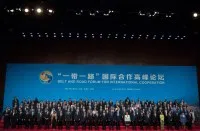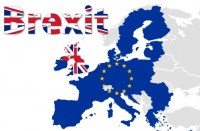Prior to his meeting with President of the European Commission Jean-Claude Juncker ,Donald Trump Tweeted his low expectations for his meeting which aimed at solving the current Washington-Brussels trade dispute. Trump’s pessimism regarding the European position on free trade was in fact well founded based on decades of EU practices and approaches to bilateral trade agreements.
While the EU has created a single market and customs union among its own members, the EU tends to function as an economic ‘fortress Europe’ wherein genuine free trade agreements are difficult to secure and when they are secured, they are usually with countries whose economies are so qualitatively similar that the deals do not make a substantial difference to either side.
On the whole EU has constrained itself in closing doors to many imported goods throughout the phenomenon known as ‘non-tariff barriers to trade‘. These include prohibitions on certain products that do not conform to the rigid standards of domestically produced EU goods, even though most of the would-be imports are perfectly safe and used on a frequent basis in wealthy economies ranging from China to the United States. The imposition of import quotas on a range of goods is another EU method of creating tariffs through the backdoor as is the notorious red tape involving EU import licences. Likewise, the EU’s imposition of high value added tax on most imports is essentially a mini-tariff in and of itself.
Even going back to 2011, complaints were made to the World Trade Organisation (WTO) about how the EU’s trade practices with non-member states are incredibly restrictive. Little has changed since then. In this sense, while Trump both walks the walk and talks the talk on old fashioned protectionism, the EU is stuck in a rut between the modern rhetoric of free trade and the parochial values of protectionism.
But in reaching an agreement with Junker, Trump has proved that the EU simply could not afford to lose its American trading partner, especially given the fact that Brussels has displayed stereotypical caution when it comes to forging a more free, fair and open trading agreement with a Chinese economy that is rapidly opening up its own doors at historic levels.
In the end, Junker agreed to work progressively towards a non-tariff/no barrier/no subsidy model for industrial trade with the US with cars and other motorised vehicles being exempted from this non-tariff model. At the same time, Junker agreed that the EU will increase its agricultural, pharmaceutical, chemical and liquefied natural gas imports from the US, with US soybeans being mentioned as a particularity US export that will now have an easier route to the EU. US farmers have been particularly hurt by the current Trump instigated trade war with with China and as a result, an surplus of produce including soybeans has resulted from US agricultural exports being cut-off from their traditional Chinese consumer base. The EU will now play some role in attempting to alleviate this by opening European shelves to more US agricultural produce.
However, the EU may still be in for a shock when it comes to the all important auto export industry. Sources close to the US President told reports that Trump may still be planning to go through with a threatened 20% tariff on European auto imports. While Trump and Junker both agreed to pause new tariffs as further negotiations commence following on from yesterday’s meeting - if Trump appears dissatisfied with the progress of further talks, it remains in his power and more importantly in his character to continue pursuing new tariffs on European imports.
While yesterday’s meeting produced a general statement of agreement, no formal deals were signed. Donald Trump has thus far been able to see off opposition to protectionism from many members of his own Republican party, but in the EU, Junker may not have so easy a time convincing heavily subsidised European industries who also traditionally rally behind trade barriers to embrace the spirit of yesterday’s agreement.
In either case, because the EU has so little mutipolar leverage when it comes to making trade agreements with large economies that are qualitatively different from the EU’s own large internal market, Brussels has little choice but to play ball with an unpredictable Donald Trump. In this sense, while a win-win economic agreement for freer trade may penultimatly result from the Trump-Junker meeting, in terms of the EU’s ability to back up its rhetoric with action, Brussels is clearly the loser when it comes to negotiating a new era in trans-Atlantic trade.



